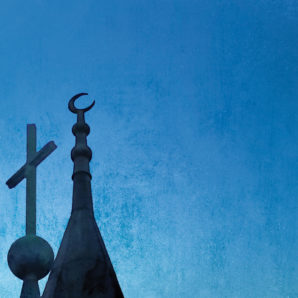Contending Modernities in France: Muslim Expression vs. Secular Integrity
Last month, on April 11, 2011, France became the second country in Europe, following Belgium, to ban the wearing of the full Islamic veil or burqa. Under the new law, women who wear face-covering Muslim veils in “public places” in France face a fine of about $200, compulsory “special classes” on citizenship, or both. This direct clash between the religious practice of some Muslims and a law that many French leaders and citizens believe is a logical extension of France’s secularism could not be of more direct interest to Contending Modernities. We therefore asked two of our regular commentators—M. Christian Green and Mahan Mirza—to offer their reflections on France’s burqa ban.
Read More →

